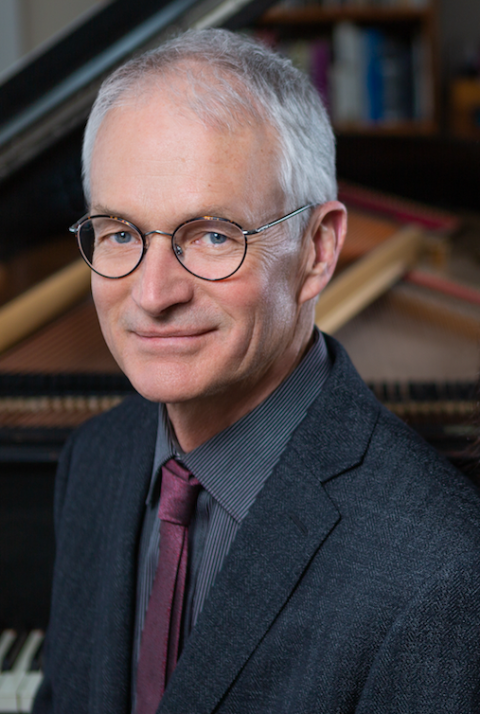
Neil Olmstead
For media inquiries, please contact Media Relations
Neil Olmstead is a pianist, composer, author, and educator with expertise in jazz and classical genres. He held a 10-year piano residency at the Copley Plaza Hotel’s Plaza Bar in Boston, where he shared the stage with Teddy Wilson, Adam Makowicz, Dave McKenna, and Sammy Price, among others. Olmstead has performed with the Jimmy Giuffre Quartet and the Moody Blues, among others. His trio Symbiosis has appeared on NPR’s Eric in the Evening on WGBH. He has performed abroad at the Umbria Jazz Festival in Perugia, Italy, and has been a lecturer/performer at the University of Padua, Italy, and the Conservatorio Statale di Musica Luisa D’Annunzio in Pescara, Italy. He has been a distinguished fellow at Hambidge Center for Creative Arts and Sciences in Georgia.
Olmstead's compositions include orchestral works recorded by the Warsaw National Philharmonic Orchestra and Bratislava Radio and Television Orchestra. His jazz album Colaboração was released in 2012. Secrets of Ferns, a five-movement song cycle for mezzo-soprano and piano, was recorded in 2019. The piece's score is published by Sheet Music Plus and Score Exchange. He is also the author of Solo Jazz Piano: The Linear Approach, published by Hal Leonard Music and available worldwide.
Olmstead holds a Master of Music in jazz composition from New England Conservatory (NEC) and a Bachelor of Music in composition from Berklee College of Music. He also pursued undergraduate studies at Boston Conservatory. He studied piano with Ed Bedner, Wilfred Churchill, and Al Lee, music composition under Dr. Hugo Norden at Boston University, William Thomas McKinley, George Russell at NEC, and with Nadia Boulanger at Ecole d’Art Americaines, Palais de Fontainebleau, France.
- Performances with the Jimmy Giuffre Quartet and at the Umbria Jazz Festival 1989, 1990, and 1992
- Founder and leader of the jazz trio Symbiosis
- Radio and television appearances
- Compositions recorded by the Warsaw Philharmonic Orchestra and Bratislava Radio and Television Orchestra
- MMC Recordings artist
- Author, Solo Jazz Piano: The Linear Approach
- International clinician and lecturer
- Recordings including Colaboração and Secrets of Ferns
- 45 years of teaching college-level piano
Professor Emeritus, Berklee College of Music
